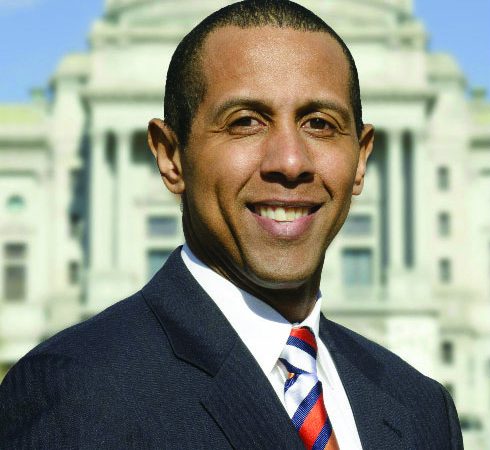Lenny McAllister is the director of Western Pennsylvania for the Commonwealth Foundation. For more information, visit www.commonwealthfoundation.org.
Rewarding hard work with access to opportunities is a noble goal. Removing red tape that blocks those chances helps achieve that goal.
When people tell me about the hopelessness found in pockets of impoverished America, I often respond with a saying:
“There are no socialists hustling on street corners in the dead of winter or the heat of summer. They’re capitalists that are just focused in the wrong ways. ”
I’ve seen it a lot over the years. The work ethic is already there. The ingenuity is already there.
Have you ever seen a desperate father sell socks to pedestrians and motorists, standing on the off-ramp of a major freeway during rush-hour traffic in the dead of winter? Have you seen unemployed youth selling bottles of water at an urban traffic light during the “dog days of summer,” using what resources they had to make a profit through the narrowest of margins?
Work ethic? Determination? Check and check.
Can you just imagine what would happen with just a little more guidance and a fewer impediments blocking “the right ways”?
I can.
I envision more employment, more employers, more opportunities and more self-sufficiency for everyone — including the formerly incarcerated, who are often stuck on the outside of society looking in.
The Fighting Chance Act, recently introduced in Harrisburg by Reps. Andrew Lewis (R-105th) and Malcom Kenyatta (D-181st), would help others secure those “right ways.” Simply put, this bill will reduce much of the bureaucracy preventing those on the fringes of society from becoming productive leaders in our communities.
Those who have tried turning a dream into a viable business understand what’s wrong with excessive regulations and outdated requirements. Pennsylvania’s backward policies suppress the enthusiasm, innovation and entrepreneurial spirit we need to succeed.
For example, Pennsylvania requires hair braiders and nail technicians to get licensed by the State Board of Cosmetology, complete with hundreds of hours of training — with some licensing requirements involving upwards of eight times the amount of training it takes to become an EMT. We’re needlessly blocking people from jobs — a necessary first step toward self-sufficiency and well-being.
Sometimes, occupations such as hairstylist or nail technician serve as steps toward a larger goal. Just ask Karen Morris-Priester, a Pennsylvania native who went from braiding hair to support her children as a single mother, to becoming an Ivy League-educated doctor. Or Katty Daniels, the cosmetologist who started her own hair salon on her way to becoming a naturalized citizen.
Other times, these occupations involve learned skills that former offenders honed during their time away. Their hope for rehabilitation was based on a belief that developing skills was a ticket to opportunity and a life after incarceration. Obtaining consistent, skilled and valued employment allows the formerly incarcerated to become providers and leaders within their families and communities. Just ask barber-turned-business owner Corry Sanders, elected by his peers to citywide office in 2015.
It’s clear: Jobs provide income and working fosters dreams. No outdated regulation, arbitrary provision or bloated bureaucracy should be allowed to stop the next success story from flourishing — especially when it can happen in our backyard.
Today, Americans from varying walks of life count on the ability to access opportunity for advancement. The potential loss of 90,000 Pennsylvania jobs annually due to outdated occupational licensing can be reversed through the passage of the Fighting Chance Act, a bill that will eliminate roughly 25 percent of the bureaucracy that impedes dreams. For the working poor, the Fighting Chance Act is a bridge from poverty to prosperity that provides an economic level playing field by removing unnecessary barriers.
A recent study by a MIT economist noted that, as it stands, it will take many Americans roughly two decades to eradicate poverty from their families, even if they are finding “the right ways” to procure success. Steady work has always been the path to prosperity, which is why the push for everything from regulatory reform to work requirements for able-bodied welfare recipients is crucial.
The last thing we should do is keep the inspired from plying their trades due to archaic barriers. All they really need is a fighting chance.













